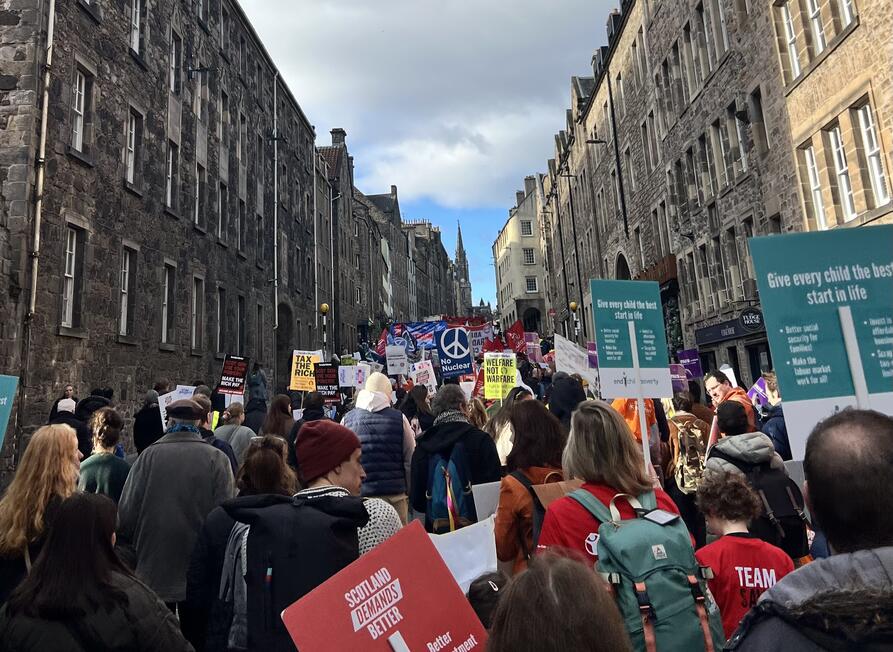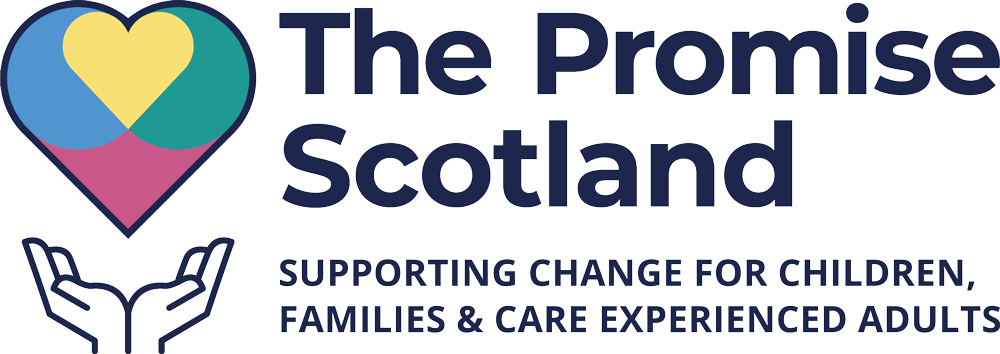Respecting rights and building a better Scotland together
This week is Care Experienced Week, an important time to celebrate the care experienced community. I’ve been lucky enough to be out an about, enjoying the work of many care experienced young people and meeting those who are working hard alongside them, day-in and day-out.
Highlights have included attending the grand opening of the City of Edinburgh’s fantastic new hub for care experienced young people – slap bang in the middle of the city and a fantastic resource for care experienced children, young people and families.
And then on Tuesday night I was delighted to be at Clydebank Town Hall for the opening night of ‘Unheard Voices, Unbroken Spirits’, a new, original musical written, produced and performed by care experienced young people across West Dunbartonshire. It was a powerful and moving evening, with some very clear - and very reasonable – asks from the cast. Please do get along if you can!
I was also pleased to attend the Scotland Demands Better rally in Edinburgh on Saturday with thousands of friends, colleagues and campaigners working to make Scotland a better place to live and grow up. It was great to see so many familiar faces, including our friends from Who Cares? Scotland, and the event was full of energy, hope for change and for standing together for our communities.

All of this has felt very relevant to the theme of this year’s Care Experienced Week, Rights. Upholding and defending the rights we all deserve makes our communities, and the lives of those within them, stronger and more prosperous.
The promise and rights
2025 marks the halfway point to keeping the promise. Work is well underway on the further development of Plan 24-30, Scotland’s plan to keep the promise. This involves working collaboratively with a wide range of people to develop the route maps to get us to 2030, including ensuring Scotland fully embeds a rights-based approach to decision-making and care at every turn.
There is a specific route map to ensure that Scotland will respect, uphold, champion and defend the rights of children. This includes tracking progress that has happened so far and key milestones like the United Nations Convention on the Rights of the Child (UNCRC) (Incorporation) (Scotland) Act 2024 which fully incorporates the rights of the child into Scots law, and the recently introduced Restraint and Seclusion in Schools (Scotland) Bill which is a crucial step forward in Scotland’s efforts to become a nation that does not restrain its children.
And we see this in tangible ways through commitment on the ground to reduce, and where possible eliminate, the use of restraint through collaboration across action groups, organisations, and sectors.
But we also see there is still a long way to go to fully embed rights in all that we do. The recent report from the Mental Welfare Commission and Healthcare Improvement Scotland on the Melville Unit demonstrates wider problems across Scotland. As the report notes, there is currently no specific piece of legislation or Scottish guidance dealing with restraint, setting out what is lawful in a hospital and what is not.
This is something The Promise Scotland, with others, has been pressing to change since the Independent Care Review concluded five years ago. Ongoing efforts are critical to making sure the rights, safety, and dignity of care experienced children, young people, and adults across Scotland are guaranteed.
Voice at the heart
Within these conversations, reports, and legislation around what hasn’t been done and what must change, we must remember the children and young people whose lives and experiences are directly affected by whether their rights are upheld.
No one can say this better than the young people themselves – their voices are loud and clear, and we must listen. A perfect example of this is the new resource Seeing beyond the surface: What children and young people wish all adults knew from Our Hearings Our Voice. It brings to life how real opportunities to participate in decision making and develop supportive relationships with trusted adults has been incredibly important to young people as well as highlighting the times that this hasn’t happened for them and the impact that has had.
The promise is also clear about the importance of language – and so it was great to see another fantastic resource produced recently by our friends at Each and Every Child. It is a highly practical guide to framing report writing in ways that are jargon free and avoids stigma. I was also delighted to see the guide use the ‘what matters’ questions, developed by The Promise Scotland team as part of The Promise Story of Progress.
The path forward
Ensuring that Scotland has a clear path to keeping the promise is vital. We are working collaboratively with those leading and delivering change to develop the 25 route maps in Plan 24-30 by the end of the year.
This Care Experience Week provides sharp focus on the fact that rights and the voice of care experienced communities must underpin the path forward. Keeping sight of how things join up, and avoiding siloed approaches, is essential to creating meaningful change that will last beyond 2030.
The next stage of this work, in 2026, will be for The Promise Scotland to help those working locally to take these national plans and turn them into local activity. We will need to widen and deepen collaboration across organisations, sectors and leadership to ensure this happens.
Without the years of determined campaigning by the care community, and the 5,500 voices that spoke to the Independent Care Review, there wouldn’t be a promise or the national, collective commitment to the transformation of care that we see today. Scotland must now honour those voices and The Promise Scotland will continue to play its part to delivering change.
About the author

Fraser McKinlay
Chief Executive
Fraser has been Chief Executive of The Promise Scotland since September 2022. Prior to that, he spent 16 years working for Audit Scotland, including ten years as Controller of Audit and Director of Performance Audit and Best Value.
Before joining Audit Scotland, Fraser was a public services consultant in Edinburgh and London. He specialised in leadership, change management, facilitation and process improvement.
Fraser is committed to systems change, focusing on how public money is spent more effectively to enable better lives for children, young people, care experienced adults, families, and communities.
